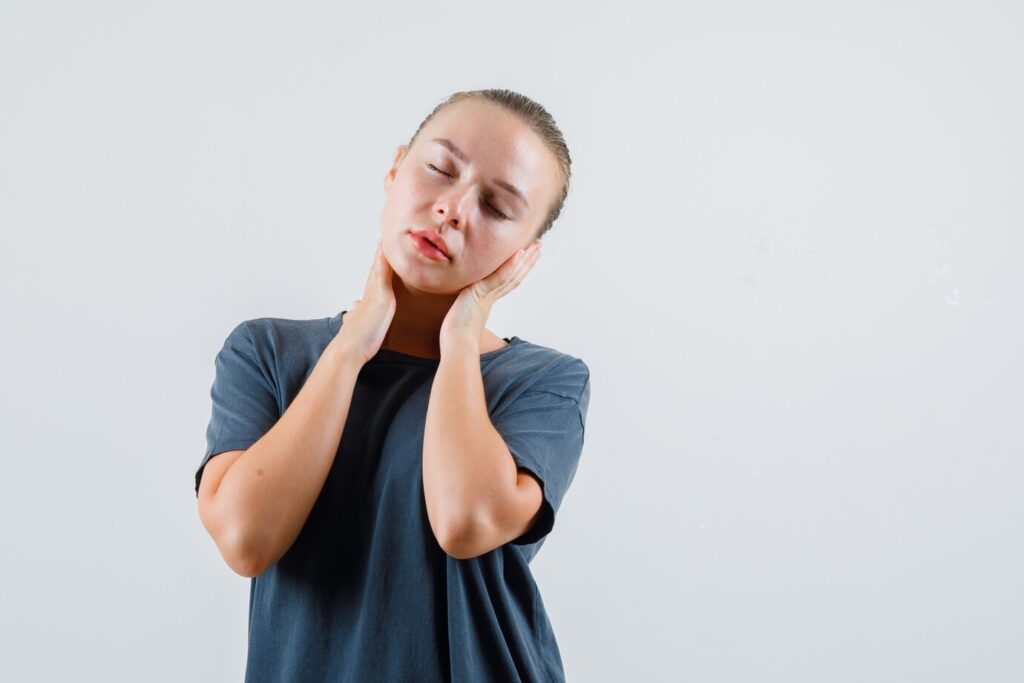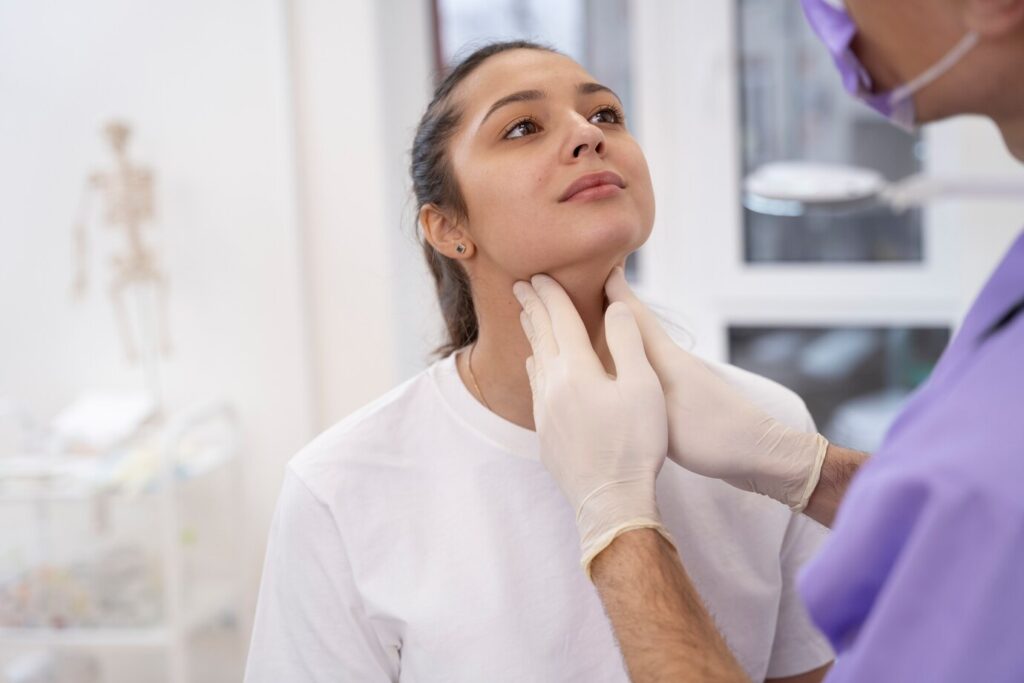TMJ Disorder
Temporomandibular joint Disorder
What is TMJ disorder? Your jaw is attached to the temporal bones of your skull, which are located in front of each ear, by a hinge called the temporomandibular joint. Your jaw may move up, down, and side to side. Temporomandibular joint diseases are issues with your jaw and the facial muscles that regulate it (TMD). TMD is a condition that can make it difficult for you to open and close your mouth comfortably. It is characterized by pain.
Symptoms of TMJ disorder
You may suffer
Facial spasms,
Clicking,
Catching,
and popping sound in your jaw,
Trouble opening your mouth to speak or eat.
These symptoms may also lead to
Headaches,
Neck pain,
Jaw pain,
and a locking jaw that prevents you from opening or closing your mouth.
Conditions
Treatment options by your consultant PT
Fortunately, there are ways to treat TMD symptoms and reduce jaw discomfort and pain your Consultant PT specialized in TMJ pain and will use a variety of techniques to do this. So, if you have TMD, what can you anticipate and how can your consultant physical therapist who specializes in this illness help.
- Manual Therapy
- Education
- TMD Soft Tissue Mobilization
- Massage
- Dry needling
- Exercises for the jaw


Causes of Jaw Pain
TMD can have a variety of reasons. These may consist of:
whiplash-like head and/or neck trauma
Articular disc displacement in the joint
spasms of muscles near the joint
articular arthritis
having a forward-facing head and rounded shoulders while sitting or standing
Muscle tension in the jaw and face can result from stress.
The clenching or grinding of the teeth
When the joint is overstressed, it can result in pain and dysfunctional joint mobility. Inflammation of the temporomandibular joint or of the muscles and ligaments around it may result from stress.
Exercises for Jaw pain
Jaw pain relief exercises include gentle jaw stretches and controlled opening/closing movements to improve mobility and reduce tension. Try placing your tongue on the roof of your mouth while slowly opening and closing your jaw to ease discomfort.
- Jaw relaxation exercise
- Partial mouth opening exercise
- Full mouth opening
- Chin tucks
- Side to side Jaw exercise
